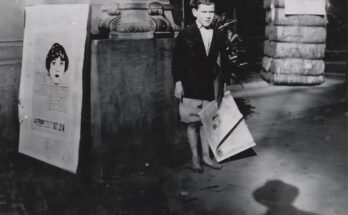On May 21, 1938, in the heart of Paris, France, a little girl named Jacqueline Fogielman was born into a world that, for a short while, offered her the joys of childhood. She was a French Jewish child, surrounded by family and love, growing up in a city known for its beauty, culture, and history. Her early years were marked by the simple pleasures of youth, moments filled with laughter, curiosity, and dreams yet to be imagined.
Jacqueline’s young life was defined by innocence and the boundless wonder typical of a child. She was only five years old when World War II erupted in Europe in 1939, a conflict that would soon reshape her world entirely. For Jewish families like the Fogielmans, the war brought increasing danger, fear, and discrimination, as Nazi ideology spread across the continent and anti-Jewish laws tightened their grip on daily life.
As the Nazi occupation of France intensified, the situation became increasingly perilous for Jews. Many were stripped of their rights, livelihoods, and identities. Jacqueline, though still just a child, was not immune to the hatred and persecution that defined this dark chapter of history. Her life, once filled with promise, was overshadowed by fear and uncertainty.
In March 1944, the horrors of the Holocaust reached Jacqueline directly. At the age of five, she was taken from her home and sent to the Drancy internment camp, located just outside Paris. Drancy served as a transit point for thousands of Jews who were deported to Nazi extermination camps. For Jacqueline, it was a place of confusion and heartbreak, far removed from the world she had known.
On March 30, 1944, Jacqueline was deported from Drancy to Auschwitz, one of the most notorious Nazi death camps. The journey itself was grueling, with people packed into cattle cars under inhumane conditions. Upon arrival at Auschwitz, families were torn apart, and individuals were subjected to immediate selection by Nazi officers, who decided who would be spared for forced labor and who would be sent to their deaths.
Jacqueline, like so many children, stood no chance. Too young to work and deemed “unfit” by Nazi standards, she was sent directly to the gas chambers. Her life was cruelly and senselessly taken shortly after she arrived at Auschwitz. She was just five years old—her childhood stolen, her voice silenced, her future erased in an instant.
Jacqueline was one of over a million Jewish children murdered in the Holocaust. Each of them had a name, a story, a family, and a life filled with potential. Remembering Jacqueline is an act of resistance against forgetting. In honoring her, we reclaim her story from the silence imposed by her killers.
Today, we speak Jacqueline Fogielman’s name. We remember her brief life with reverence and sorrow. Her memory, along with those of countless other innocent souls, must never fade. May her memory be a blessing, a reminder of the cost of hatred, and a call to protect the dignity and humanity of all children—everywhere.


